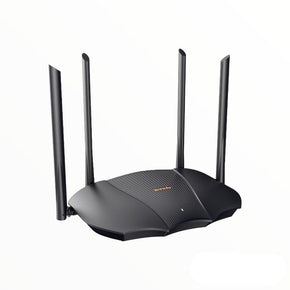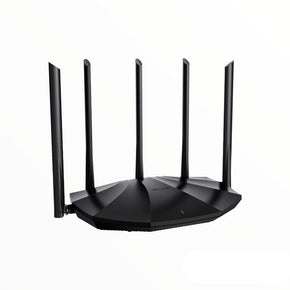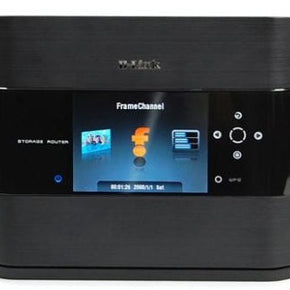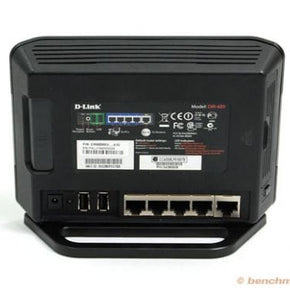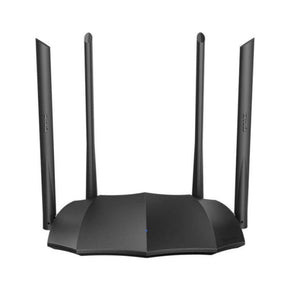- No products in the cart.
Browse Categories
-
Home Appliances
-
Small Appliances
- Audio Visuals
-
Bedlinen & Bathroom
- Decor
-
Dress Fabrics, Haberdashery & Sewing
-
Electronics & Cellphones
- Tech & Gaming
-
Kitchenware & Cleaning
-
Curtaining, Upholstery & Blinds
-
Furniture
- Catering Equipment
-
Fashion
-
Lighting & Hardware
- Solar Solutions
- Luggage & Bags
-
Camping & Outdoor
-
Baby & Toys
- Rugs & Flooring
- Stationery
- Clearance Sales Clearance Sales
- Sort by
- FILTER BY PRICE
-
-
Below $100.00
-
$100.00-199.00
-
$200.00-299.00
-
$300.00-399.00
-
$400.00-499.00
-
Above $500.00
-
- FILTER BY COLOR
-
-
- FILTER BY SIZE
-
-
S
-
M
-
L
-
XL
-
2XL
-
3XL
-
- FILTER BY BRAND
-
-
Adidas
-
Camel
-
Motorola
-
Rolex
-
Samsung Galaxy
-
Seiko
-
Sony
-
D-Link DIR-685 Xtreme N Storage Router and Photo Frame, 2.5" Drive Bay, 3.2" LCD, Draft 11n
Routers for Sale Online
Shop our range of routers for sale at MHC World. Buy online and receive free delivery over R3500 & within a 30km radius from our store.
Apart from our routers for sale, we also offer laptops, computer accessories and computer monitors.
In today's interconnected world, a reliable internet connection is no longer a luxury; it's a necessity. But how does that signal travel from the vast web to your devices?
Enter the router, the unsung hero that silently directs data traffic within your network, ensuring your devices seamlessly connect to the internet. Let us explore the world of routers, their functionalities, and why they are an essential part of your digital life.
What Is a Router?
A router is a hardware device that connects your home network, consisting of your computers, smartphones, tablets, and other internet-enabled devices, to the wider internet.
It acts like a traffic controller, receiving data packets from the internet, deciphering their destination addresses, and forwarding them to the appropriate device within your network.
How Does a Router Work?
When you connect to the internet, your internet service provider (ISP) sends data packets to your modem.
These packets contain the information you requested, whether it's a webpage, a video, or an email.
The modem converts this signal into a format your devices can understand. The router then takes over, reading the destination address within each data packet.
Using a routing table, it determines which device on your network the information is intended for and forwards the packet accordingly.
This ensures that data reaches the correct device, allowing you to browse the web, stream videos, and connect with others online.
The Development of Routers Through the Years
Early routers were bulky and expensive and used primarily in large corporate networks. As technology advanced, routers became smaller, more affordable, and easier to use for home networks. Today's routers offer a variety of features beyond basic routing, including:
- Most routers offer Wi-Fi capabilities, allowing your devices to connect to the internet wirelessly.
- Routers come with built-in firewalls and encryption protocols to protect your network from unauthorised access and security threats.
- Some routers allow you to set parental controls to restrict access to certain websites or content for specific devices.
Benefits and Disadvantages of Routers
Benefits:
- Routers enable all your devices to share a single internet connection, eliminating the need for separate connections for each device.
- Routers provide a layer of security for your network by filtering incoming and outgoing traffic through firewalls and encryption.
- Wireless routers offer the freedom to connect your devices to the internet from anywhere within the router's range, eliminating the need for cables.
- Routers help optimise network traffic flow, reducing congestion and improving overall internet performance for all your connected devices.
Disadvantages:
- The range of a wireless router can be limited by walls, furniture, and other obstacles.
- In homes with many devices connected to the network, a basic router might struggle to handle the data traffic, leading to slowdowns.
- While generally user-friendly, some advanced router features might require technical knowledge to configure properly.
Why Routers Are an Essential Part of Life
In today's digital age, a router is an essential part of most households. It allows you to connect all your internet-enabled devices, from laptops and smartphones to smart TVs and gaming consoles, to a single internet connection.
This seamless connectivity is crucial for work, education, entertainment, and staying connected with loved ones online.
Who Would Gain From Buying a Router?
Anyone who wants to connect multiple devices to the internet in their home or office can benefit from purchasing a router:
If you have a household with laptops, smartphones, tablets, smart TVs, and other internet-connected devices, a router is essential for managing network traffic and ensuring all devices have internet access.
Gamers who require a reliable and lag-free connection for online gaming can benefit from investing in a high-performance router with features like Quality of Service (QoS) prioritisation.
For those who work remotely and rely on a stable internet connection for video conferencing, file sharing, and other online tasks, a reliable router is crucial.
Different Types and Styles of Routers
Routers come in various shapes and sizes, each catering to specific needs and budgets:
- Wired Routers connect devices to the network via ethernet cables, offering a reliable and stable connection ideal for bandwidth-intensive tasks like gaming or video streaming.
- Wireless Routers offer Wi-Fi connectivity, allowing devices to connect to the internet without cables. They are the most popular choice for home users due to their convenience.
- Mesh router systems consist of multiple units that work together to blanket your entire home with a strong and consistent Wi-Fi signal. This is ideal for larger homes or those with thick walls that can weaken a traditional router's signal.
- Gaming Routers prioritise features important for online gaming, such as Quality of Service (QoS) to minimise lag and latency, and powerful processors to handle high data traffic.
What is the Lifespan of Routers and How Can You Extend It?
The lifespan of a router depends on various factors, including usage patterns, heat management, and overall care. A well-maintained router from a reputable brand can last for several years (around 5-7 years) before needing an upgrade. Here's how to extend the lifespan of your router:
- Position your router in a central location within your home to ensure optimal Wi-Fi coverage. Avoid placing it near walls, metal objects, or other electronics that can interfere with the signal.
- Ensure proper ventilation around the router to prevent overheating, which can damage internal components. Avoid placing it on enclosed shelves or in tight spaces.
- Keep your router's firmware updated with the latest patches from the manufacturer. This can improve performance, fix bugs, and address potential security vulnerabilities.
- Just like any electronic device, rebooting your router periodically can help clear temporary glitches and improve performance.
- Use strong passwords for your Wi-Fi network and enable security features like WPA2 encryption to protect your network from unauthorised access.
How to Choose a Router
With the vast array of routers available, choosing the right one can be tricky. Here are some tips to guide you:
Consider how many devices you'll be connecting, what you'll be using them for (streaming, gaming, browsing), and the size of your home.
Routers range in price from affordable options for basic needs to high-performance models with advanced features. Determine how much you're comfortable spending.
Decide if you primarily need wired connections or the convenience of Wi-Fi. If Wi-Fi is essential, consider factors like range, speed, and whether you need features like mesh networking.
While not always necessary, some routers allow for future upgrades by offering additional ethernet ports or USB connections.
Best Brands of Routers Available on MHC
At MHC you can purchase all reputable brands of routers, including Tenda, Alcatel and TP-Link at a reasonable price.



